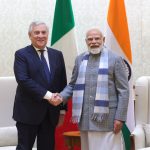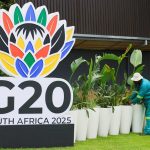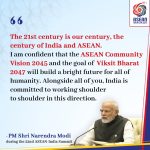There is a new upswing in India’s relations with the United Arab Emirates, home to 2.6 million-strong Indian community and New Delhi’s third largest trading partner after China and the US. Barely weeks after the successful trip of Prime Minister Narendra Modi to the Gulf state in August, UAE’s Foreign Minister Sheikh Abdulla Bin Zayed Al Nahyan visited India on September 2 and 3, imparting a fresh momentum to multilayered bilateral ties.
Economic ties on upswing: UAE opportunity
Building upon the plan of action outlined during PM Modi’s trip, the two countries signed five pacts straddling diverse areas, including higher education and scientific research, technical cooperation, tourism and telecommunication. The focus is clearly on upscaling economic ties, which was seen in the signing of a pact between Federation of Indian Chamber of Commerce and Industry (FICCI) and UAE Chambers of Commerce and another agreement on setting up a Joint Business Council.
Bilateral trade between the two countries is hovering around USD 60 billion and looks poised to move up a higher trajectory. The two countries have set a target of scaling up bilateral trade by 60 per cent over the next five years.
The infrastructure-hungry India is hoping to receive investments to the tune of USD 75 billion over the next five years through the establishment of the UAE-India Infrastructure Investment Fund. The sovereign wealth fund of the UAE which is estimated to be around USD 800 billion can offer a slew of opportunities for Indian companies, especially in the infrastructure sector and contribute to the success of India’s flagship programmes such as ‘Make in India’.
Focus on strategy, counter-terrorism
Alluding to the upward curve of bilateral ties, the UAE’s foreign minister underlined that India is the first ‘non-oil’ strategic partner of the UAE. PM Modi’s August visit to the Gulf state culminated in an ambitious all-encompassing joint statement which focuses on complementing growing economic ties with strategic depth. The increasing salience on deepening strategic ties underscores a shift from the earlier trade-driven approach to this crucial relationship.
In the latest round of engagement between India’s External Affairs Minister Sushma Swaraj and the visiting UAE minister, security issues figured prominently in discussions. With the Islamic State unleashing mayhem across a wide arc in the region and the looming threat of increasing radicalization of young people, the two countries focused on sharing of experience and expertise to bolster counter-terror cooperation. The discussions with the UAE signal a broader trend on part of India’s diplomatic-strategic establishment to deepen the strategic dimension of India’s ties with the energy-rich Gulf region, home to over 7 million strong Indian diaspora who contribute over $40 billion in annual remittances.
With India’s growing energy-hungry, the UAE, which is the sixth largest import source of crude oil for New Delhi, is set to remain critical to energy security of Asia’s third largest economy.
(Sridhar Ramaswamy contributed inputs for this article)
Author Profile

- Manish Chand is Founder and Editor-in-Chief of India Writes Network (www.indiawrites.org) and India and World, a pioneering magazine focused on international affairs. He is CEO, Centre for Global India Insights, an India-based think tank focused on global affairs.
Latest entries
 India and the WorldDecember 12, 2025India-Italy bonding: Tajani’s visit raises the bar for business, maritime ties
India and the WorldDecember 12, 2025India-Italy bonding: Tajani’s visit raises the bar for business, maritime ties In ConversationNovember 26, 2025G20 is a Force for global Good
In ConversationNovember 26, 2025G20 is a Force for global Good articlesNovember 26, 2025Rescuing G20 from North-South divide: Ubuntu Moment
articlesNovember 26, 2025Rescuing G20 from North-South divide: Ubuntu Moment India and the WorldOctober 27, 2025Modi hails the century of India and ASEAN, backs ASEAN centrality
India and the WorldOctober 27, 2025Modi hails the century of India and ASEAN, backs ASEAN centrality








